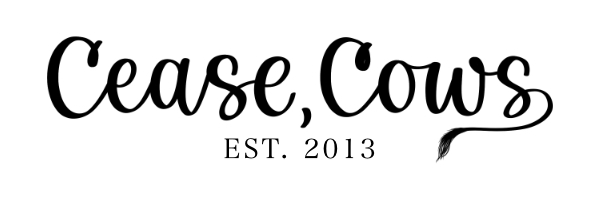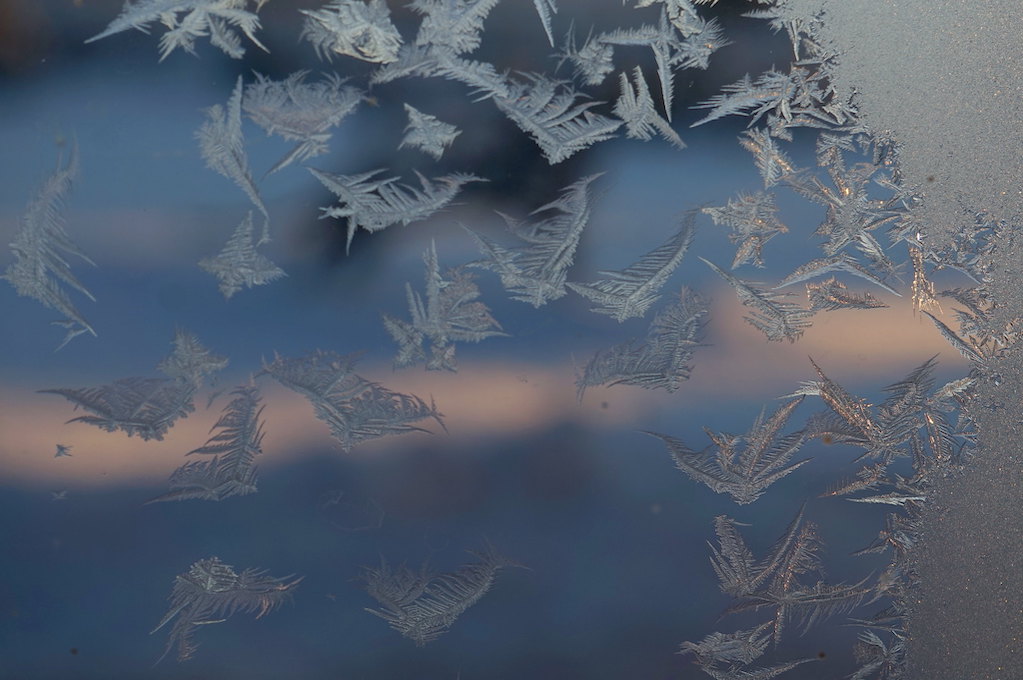Something happened to the car. We got stuck in an old hotel, up just a few blocks from a five-and-ten. Mom went to get a newspaper, and it started snowing. I was 9 and 7 was 7. We were leaning up against a window pane, our noses pressed to the glass. This is exactly what mom told us not to do. “And if I come back up that street and I see you with your snotty noses pressed up against that glass, so help me god,” she said, before pulling the door shut. But this is what we liked about the glass—it was so cold, and when we pressed our faces and hand against it, and pulled them away, they made these beautiful imprinted steam-flowers that were going to disappear long before she came back. And besides, I reasoned, watching 7 lean forward and rub his whole face into the condensation, making a huge frosty streak, and turning his cheek bright red—besides, it was mom who left us alone in a dark, overheated, overstuffed hotel room, looking out over a strange town. And it was mom who said “I’m going to get a newspaper, be quiet, don’t let any strangers in and for god sakes don’t press your faces up against that glass,” and it was me who said “why not?” and it was mom who said “that window pops open or cracks and you’ll see why not” and then she went into the bathroom and stared at herself in the mirror for a minute—not fixing her hair or checking her teeth or anything, just staring—and then she said the other thing, the snotty noses thing, and then she pulled the door behind her and turned the lock and clicked down the hallway and then she came out, down there on the street, crossing at the light, nobody looking at her, her looking at nobody. We watched her turn a far corner and disappear. And then we went back to the glass. “When is mom coming back?” 7 asked, before licking the condensation off the glass, and then starting again with the nose-press. “She’s getting the paper,” I said, but I wasn’t really listening to myself. The snow was spiraling down now, little sheets of white circling the hotel, a dusting. The steam from my nose made a shape like an octopus. I pressed my thumbs onto the glass. Two little octopus-eyes stared back at me. “She said she’d be right back.” Seven licked the glass he just licked and I licked my octopus. It tasted like glass. “She said…” The snow started for real now, like people were tossing little white newspapers from the roof. We watched the street, our little noses growing colder and wetter. The little newspapers fluttered around like their own little tornadoes. The sidewalk where mom went was coated in white, with no mom footsteps anywhere. “When is she coming back,” 7 said. “Any minute now,” I said. “She’s probably reading the paper. She’s probably buying a slicker.” Then we heard footsteps in the hall. We wiped the glass with the palms of our hands, but it just smeared everything around. We tried with our pajama sleeves but that made it worse. The steps got closer. We pulled the curtains shut and jumped on the bed. We stared at the tv, a black and white grainy affair, where a man in a suit stood silent in front of a map. The steps came to our door and then they kept going down the hall. We heard a door slam. Then we got up and pulled the curtains open. We pressed our noses against the glass, a little harder this time. And we stared out together at the white whirl beyond the glass, to see what we could see.
–
Frank Haberle‘s short stories have won the 2011 Pen Parentis Award, the 2013 Sustainable Arts Foundation Award, and the 2017 Beautiful Loser Magazine Award. They have appeared in magazines including The Stockholm Review of Literature, Inwood Indiana, Necessary Fiction, The Adirondack Review, SmokeLong Quarterly, The Melic Review, Wilderness House Literary Review, Cantaraville, and Hot Metal Press. Frank lives in Brooklyn and works in the Bronx.
Lead image: “Frost Birds” (via Flickr user Mike Lewinski)

